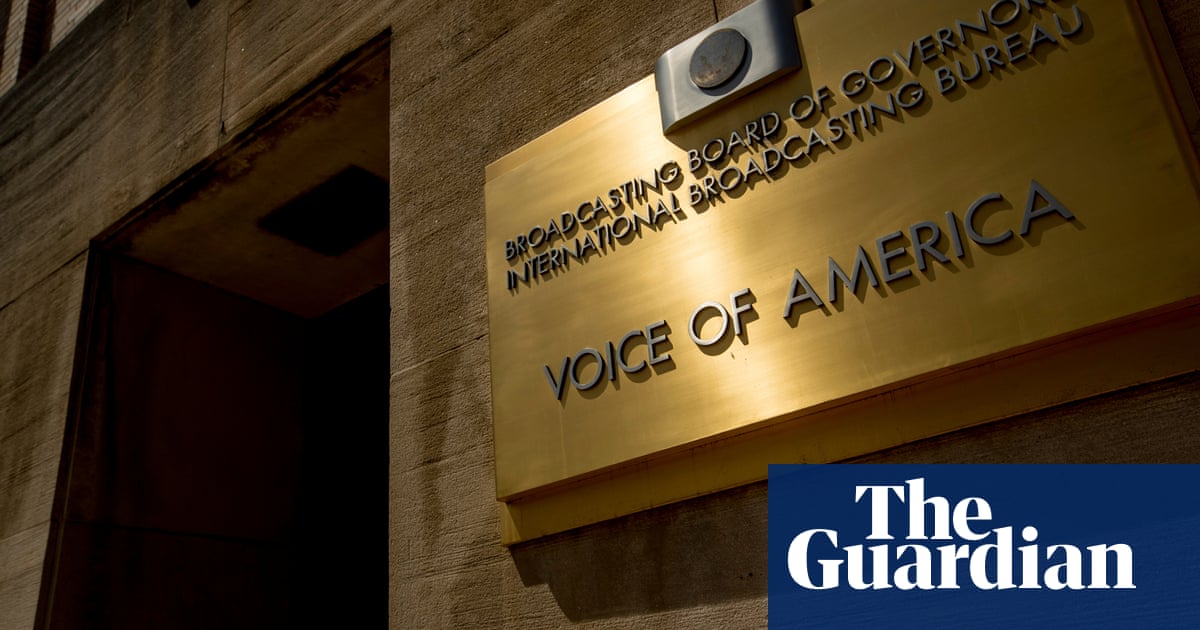Voice of America (VoA), the US-taxpayer funded news service for overseas listeners, could be back on the air as soon as next week, after a federal appeals court granted a temporary stay on an executive order dismantling the broadcaster.
VoA was effectively shut down after Trump signed an order on 14 March dismantling or shrinking seven agencies including the US Agency for Global Media (USAGM).
The USAGM is an independent government agency that oversees VoA and distributes congressionally appropriated funds to several non-profit broadcasters which provide news and information in almost 50 languages in countries with limited or no access to independent media sources.
After nearly every affected network sued, US district judge Royce Lamberth, a Ronald Reagan appointee,granted a preliminary injunctionin late April, ruling that the executive order was arbitrary and likely exceeded the president’s authority.
The Department of Justice appealed. On Thursday, a Washington DC federal appeals court, which included two Trump appointees, partly upheld the lower court ruling that will enable VoA to resume broadcasting while the appeal plays out.
VoA staff can begin a “phased return” to the office and resume programming next week, according to an email from the justice department shared with theWashington Post. Some VoA and USAGM staff have had access to their government email accounts restored.
But thelatest court ruling was bad news forthe other publicly funded broadcasters.
The Trump administration’s freeze on congressionally approved funds for Radio Free Europe/Radio Liberty, Radio Free Asia and Middle East Broadcasting Networks will remain in place while the lawsuit makes its way through the court.
While VoA is a federal entity, the other broadcasters are private non-profit organizations. The funding freeze has already forced them to make staffing cuts and reduce content.
Sign up toThis Week in Trumpland
A deep dive into the policies, controversies and oddities surrounding the Trump administration
after newsletter promotion
The USAGA had, until now, enjoyed bipartisan support, due to the vital role VoA and the other foreign-news broadcasters play in advancing democracy and US interests by reaching about 360 million people in countries that have little to no independent press.
The Guardian has contacted both the USAGA and VoA for comment.
